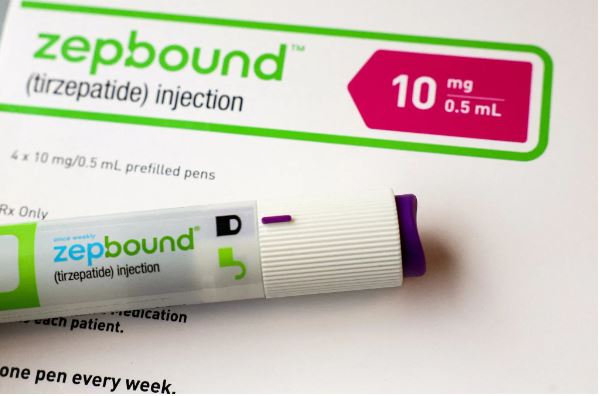A recent study examining the effects of the weight loss drug tirzepatide has revealed significant reductions in blood pressure among participants after 36 weeks of medication use. Tirzepatide, manufactured by Eli Lilly, is prescribed for the treatment of Type 2 diabetes under the brand name Mounjaro, as well as for obesity under the brand name Zepbound. As the latest addition to a new class of weight loss medications, tirzepatide competes with semaglutide, produced by Novo Nordisk and marketed as Ozempic for diabetes and Wegovy for weight loss. Researchers have been exploring whether these drugs offer additional benefits beyond weight loss.
The blood pressure study, sponsored by Eli Lilly and recently published in the journal Hypertension, was part of a broader investigation into tirzepatide’s impact on weight loss. Previous findings had already indicated that individuals taking the drug experienced lower blood pressure readings during doctor’s office visits. The latest study sought to employ more stringent criteria by evaluating whether participants using the medication exhibited lower blood pressure levels when measured with a 24-hour monitor.
The results were affirmative. Participants who were administered tirzepatide showed reductions in systolic blood pressure, the pressure exerted on blood vessels during heart contractions, ranging from 7.4 to 10.0 millimeters of mercury compared to those receiving a placebo. Systolic pressure is considered a reliable predictor of heart disease risk.
Lead author of the study, Dr. James de Lemos, a cardiologist at the University of Texas Southwestern Medical Center, noted that the observed blood pressure reduction is consistent with what would be expected from a standard dose of a blood pressure medication. He emphasized the potential usefulness of the drug for individuals seeking to manage their blood pressure and mitigate the risk of heart attacks and strokes. However, Dr. de Lemos cautioned against substituting tirzepatide for other prescribed blood pressure medications.
Despite the promising results, Dr. de Lemos acknowledged the challenge of isolating tirzepatide’s specific effects on blood pressure from the well-established impact of weight loss on reducing blood pressure levels.
Dr. Benjamin Ansell, a blood pressure specialist at the University of California, Los Angeles, who was not involved in the study, expressed little surprise at the findings. He speculated that weight loss induced by the drug may lead to additional benefits such as increased physical activity or improved sleep quality, both of which could contribute to further reductions in blood pressure.
Of particular interest in this drug class, Dr. Ansell highlighted recent research demonstrating that semaglutide, a competitor of tirzepatide, may benefit patients suffering from heart failure with preserved ejection fraction—a condition commonly associated with obesity and hypertension. In a significant study conducted by Novo Nordisk, patients treated with semaglutide experienced fewer symptoms of the disease and demonstrated improved exercise capacity.
This discovery holds profound clinical significance as it suggests a potential therapeutic approach for managing a chronic and debilitating condition while reducing hospitalizations. Moreover, previous research has shown that semaglutide may lower the risk of cardiac events such as heart attacks, further underscoring the therapeutic potential of this drug class in addressing cardiovascular health.
the latest study on tirzepatide’s blood pressure-lowering effects adds to the growing body of evidence supporting the potential of weight loss medications to positively impact cardiovascular health and outcomes. Further research is warranted to fully elucidate the mechanisms underlying these benefits and optimize treatment strategies for individuals at risk of heart disease and related conditions.

